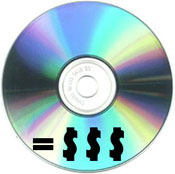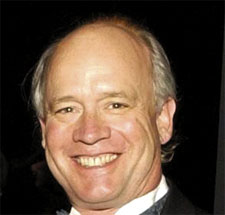
The Assets They Control Are Incredible.
So when people talk about the demise of the labels it sounds a bit ridiculous to me.
Traditional record label models have always been about creating and owning assets. But with today’s realignments, outsourced services, lower barriers to entry and digital distribution the rules seem to be in a constant state of flux. MusicRow asked Kerry O’Neil, a founding member of entertainment consulting and business firm O’Neil Hagaman to add some business perspective and frame the past, present and possible future for these all-encompassing music industry giants.
O’Neil, who specializes in strategic planning and negotiating for many high profile artists and entrepreneurs is not solely a spectator. In 1987 he co-founded Little Big Town Music which was sold to Sony/ATV in 1998. In 1998 he co-founded Big Yellow Dog Music which has already earned 13 No. 1 singles and 10 Top 10 singles. He also co-founded Warner Western Records, a joint venture with Warner Bros. Nashville.
O’Neil is strongly optimistic about the future for record labels, but sees new systems developing with many pathways to success.
MR: Describe the foundation of Nashville’s labels.
Kerry O’Neil: The traditional Nashville standard was something where labels provided financial support and access to national distribution to developing acts that couldn’t afford it by themselves. They also offered a dedicated promotion team with ongoing relationships to get the music introduced. Successful labels needed to have a keen eye for talent. Based upon their creative decisions they might enjoy periods of growth or contraction. An effective promotion staff was also essential, but no staff could succeed with mediocre music. So A&R and financing coupled with physical distribution and radio promotion were the key points. Now these elements have moved out into their own corners. A&R can be done outside of the label by producers and/or publishers. Elements of the financing part can also be handled outside the label. The costs have come down quite a bit. And access to distribution, with declining physical and ascending digital has never been easier. However, aggregating an audience has never been harder.
MR: Are promotion groups a new label model?
Kerry O’Neil: Consolidation freed many experienced promotion executives who have formed alliances which has created options to take radio promotion outside the traditional label structure. The question is are these roaming promotion companies labels or promo companies? To me, it’s a service. The promo people were never in the ownership business, it’s not a concept they find familiar. But today an artist can own some of their assets, so perhaps these promo companies might also get into the ownership business. Radio is still the way our format’s stars break through so we have a two tier approach driving costs—promoting someone at radio which is tremendously expensive and the funding to manufacture and distribute product across a big nation like the US. The cost base on the digital side is declining, but radio costs are not changing dramatically. So the driving force for success will be a combination of having adequate resources and making good talent decisions. A great talent might even be able to get in without having to go through a major.

If you are relentless about finding great talent, you may find some unique opportunities to succeed without facing the same costs we are used to now.
MR: Does falling sales re-balance the label equation? Can new revenue streams replace shrinking album sales?
Kerry O’Neil: New artists are being signed to 360 deals, but it’s too early to judge the economics because labels haven’t started making money with them yet. However, earning money from multiple platforms could provide more reasons to keep supporting an artist. For example, a single might not be driving album sales, but if it drives merchandise or ticket sales, it could still be a good investment. And SoundExchange is starting to pay meaningful money to labels and artists. It’s now collecting about $250 million a year and growing fast. And if labels get a revenue stream from terrestrial radio it will further help profitability.
MR: What do you make of the fact that one major label is for sale right now and one was just sold?
Kerry O’Neil: There was tremendous interest in Warners which tells you something. For a company to aggregate so many assets is very difficult. It seems to be a money losing model, but the assets they control are incredible and people seem to be projecting it will have significant future value. EMI’s story is yet to be told, but there will be people interested in those assets as well. So when people talk about the demise of the labels it sounds a bit ridiculous to me. The labels are reorganizing how to deploy their resources. And make no mistake, they still have significant resources. They are trying to drive down costs and broaden their platform of income participation. All good decisions. If they get the A&R decisions right—it is still based on that—then 3-5 years from now, they should be positioned to do well. Plus, we’ve come through the worst recession we’ve had since the great depression. Everything over the last two years has been exaggerated to the downside. The labels will exist. They will change and figure it out.

Labels are trying to drive down costs and broaden their platform of income participation. All good decisions.
MR: Why so optimistic?
Kerry O’Neil: Look at the analogy of free TV and cable. When free TV’s market share started to erode people jumped on the bandwagon yelling it was going away. People said they wanted niche programs that were more meaningful to them in a personal way. Today free TV has robust shows like Idol and Glee. But you can also launch John Stewart on the Comedy Channel without ever going to Free TV. He becomes a star and gets invited to do guest appearances on network TV. What I hope to see is a strengthening of the traditional labels coupled with a broadening of the base of niche label “channels.” Look at the generational change about how people are finding music. It is not driven solely by radio and retail, but also by the web, social media and whatever comes next. So if you are an 18-year-old entrepreneur with excellent taste in music, you probably aren’t going to raise money to go to radio and/or retail. You’ll play the game using the new tools. Video with a smartphone, audio with your mac, viral marketing, etc. You’ll rely on these interconnections to introduce new music. And if the music is outstanding and the video charming it will move through the system. In addition you will know where your audience is, how to reach them and where to perform live. Eventually you may bump into radio and retail, but you didn’t need their permission to play the game. On Music Row today we don’t make our money this way. But if someone already involved in the industry asks, “How do I make sure I’m viable in my entrepreneurial gambles five years from now?” I’d say analyze these cost structures. If you are relentless about finding great talent, you may find some unique opportunities to succeed without facing the same costs we are used to now.

Category: Exclusive, Featured, Financial/Legal, Label
About the Author
David M. Ross has been covering Nashville's music industry for over 25 years. dross@musicrow.comView Author Profile



